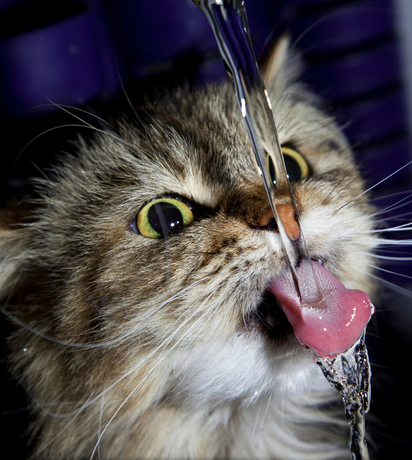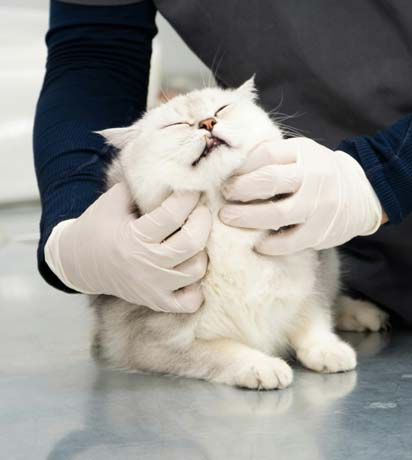Kindred Pet Care Blog
Kindred Pet Care blog is dedicated to providing you with useful information, tips, and other cute pet content. We believe that pets are an integral part of our lives and deserve the best care possible.

Fireworks and Thunderstorms: How to Calm Your Anxious Pet This Summer
Learn how to calm your anxious pet during fireworks and thunderstorms with tips from a trusted vet hospital in St. Charles. Discover vet-recommended anxiety solutions that work.

Paw Patrol: Protecting Your Pet’s Paws on Hot Pavement
Hot pavement can burn your pet's paws. Learn how a vet hospital in St. Charles helps you prevent paw injuries and keep your furry friend safe during summer walks.

Pet Hydration 101: How Much Water Do Dogs and Cats Really Need?
Is your pet drinking enough? Learn how much water your dog or cat really needs during warmer months. Expert hydration tips from a trusted veterinarian in St. Charles.

Traveling with Pets? Tips from a Veterinarian in St. Charles for a Safe Summer Trip
Traveling with pets this summer? A veterinarian in St. Charles shares how to prepare for a safe, stress-free trip. Visit a vet near you to make sure your pet is ready for the adventure.

Flea and Tick Prevention Tips from a Veterinarian in St. Charles
June is peak flea and tick season. Learn how to protect your pet from infestations and disease with advice from a veterinarian in St. Charles. Find a vet near you for year-round prevention.

Beat the Heat: Summer Pet Safety Tips from a Veterinarian in St. Charles
Protect your pet this summer with heat safety tips from a veterinarian in St. Charles. Avoid heatstroke, dehydration, and burnt paws. Find a vet near you for expert seasonal care.
.png)
Senior Dog Cancer: Signs, Prevention, and Treatment from a Veterinarian in St. Charles
Almost half of dogs over age 10 develop cancer. Learn the signs, prevention tips, and treatment options from a trusted veterinarian in St. Charles and how to find a vet near you.

Backyard Pet Safety Tips from a Trusted Veterinarian in St. Charles
Keep your pets safe in the yard with tips from a St. Charles vet. Learn about toxic plants, mulch, and chemicals that pose risks—and how to create a secure, pet-friendly outdoor space.

Dental Care for Pets: More Than Just Fresh Breath
Dental care is key to your pet’s health. A St. Charles vet explains how regular check-ups and at-home care can prevent pain, disease, and extend your furry friend's life.

Common Pet Health Myths Debunked by a Veterinarian in St. Charles
Think your pet doesn’t need check-ups or that bones clean teeth? Think again. A trusted veterinarian in St. Charles debunks common myths to help you make better choices for your pet’s health.

Pet First Aid: What to Do in Common Emergencies
Emergencies happen—be ready. Learn pet first aid tips from Kindred Pet Care in St. Charles so you can act fast, stay calm, and protect your pet’s life when it matters most.

Are You Overfeeding Your Pet?
As pet parents, we love to spoil our furry companions with treats and extra servings of food. But could those loving gestures be putting your pet’s health at risk?

The Power of Low-Stress, Fear-Free Pet Handling and Exams
Regular check-ups and examinations are essential to ensure their health and happiness. Many pets experience fear, anxiety, and stress when visiting the veterinarian or undergoing examinations.

Keep Your Pet Cool & Comfy This Summer
Beyond providing companionship and unconditional love, our pets play a vital role in our overall well-being and the connection between human and pet health and how they mutually impact each other.

Transform Your Pet's Health: The Hidden Benefits of Dental Care
When it comes to caring for our beloved pets, there are many aspects to consider, from providing them with a balanced diet and regular exercise to ensuring they are up-to-date with their vaccinations.

Common Pet Health Myths Debunked
Our pets hold a special place in our hearts, and their health and well-being are of utmost importance to us. We will debunk prevalent misconceptions and provide information to help pet owners.

Pet First Aid: What to Do in Common Emergencies
Ensuring their safety and well-being is a top priority for pet owners. While we hope to never face pet emergencies, being prepared and knowing what to do in common situations.

Traveling with Pets: Tips for a Safe Journey
Traveling with your furry friend can be an enriching experience, but it requires careful planning to ensure a safe and stress-free journey for both you and your pet.
When you entrust your pet's care to our team of dedicated veterinary professionals, you can have peace of mind knowing that they are in caring and capable hands.
We are honored to be a part of your pet's journey to a healthy and happy life, and we'll look forward to welcoming you to our Kindred Pet Care family.
Join us in the journey to create a world where animals are cherished and cared for with love and compassion.
We care.
Book an appointment


